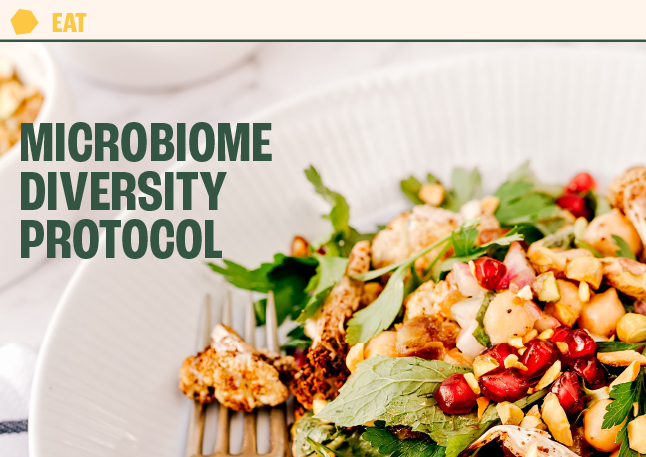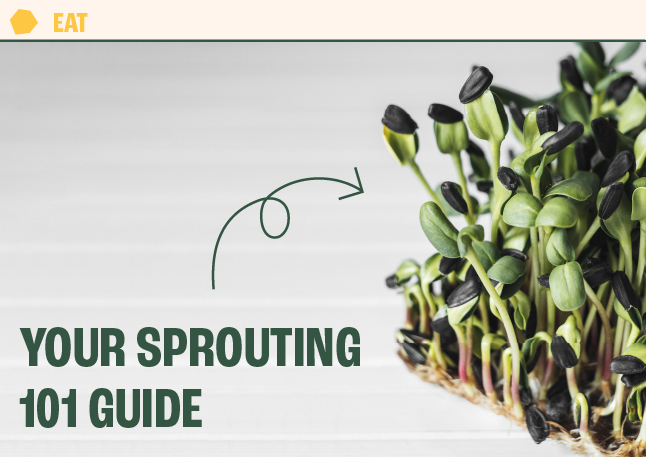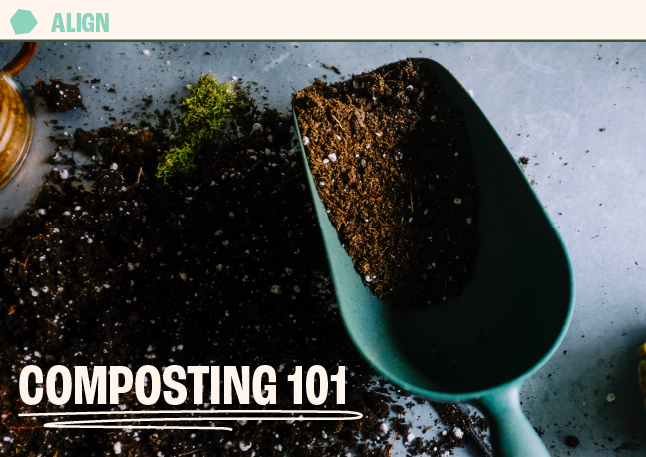An overwhelming amount of research has identified that healthy people typically have a more diverse microbiome composition than those suffering from chronic conditions such as Rheumatoid Arthritis, cardiovascular disease, Alzheimer’s dementia and even depression. So what came first, a loss of diversity or the disease state? Chicken or the egg? While future research will no doubt help tease this out (microbiome research is very much in its infancy) we do know that promoting a more diverse microbiome can help improve the integrity of the gut lining and reduce inflammation, and therefore has the capacity to prevent the exacerbation of such conditions, reduce symptoms and improve overall quality of life.
So what’s the key to building a diverse microbiome? Plants. Rather than rehashing the science covered in my book The Proof is in the Plants here’s my protocol for improving the diversity of your microbiome and improving your health.
The protocol
1 – Adopt a diet that includes a wide variety of plants.
Ideally you want to aim for at least 30 unique plants per week – a number shown by the Gut Microbiome Project to correlate with good microbiome diversity. Personally, I suggest aiming for 40 unique plants per week which allows room for 10 herbs and spices per week. Herbs and spices are rich in polyphenols, which along with prebiotic fibre and resistant starch, also act as food for the bacteria in your large intestine. To help you with this I suggest downloading my complimentary Tracking your progress guide – it includes a template for tracking the number of unique plants you eat per week.
Note: If you are transitioning from a low fibre diet with minimal plants I suggest building up to 40 unique plants over the course of 2-3 months. This will allow time for your microbiome to adjust. If you increase your fibre intake too quickly, you may experience bloating and abdominal discomfort. Rather than this being a sign that your body is not suited to these foods, it’s usually because your microbiome is a little on the weak side and needs time to grow stronger (a low fibre diet, rich in saturated fat and/or a history of antibiotic use will do that). Just as you wouldn’t walk into the gym without any experience and lift up the heaviest weight, you need to progressively expose your digestive system to more plant diversity over time and it will grow stronger (minus the discomfort). It’s adaptive, just like our muscles.
2 – Think about fermented foods!
We know that fermented foods are incredible for promoting microbiome diversity. In fact, they may even be better tolerated by those with really weak digestive systems. A recent study out of Stanford University found that 10 weeks of daily fermented food consumption (6 serves per day) significantly improved microbiome diversity and reduced inflammation.
3 – Take it easy on ultra-processed foods and animal-based foods…
Rich in saturated fat such as fatty cuts of meat and full-fat non-fermented dairy. Such foods are not helpful when it comes to building a healthy microbiome.
I hope you find this information useful. If you put this science-based protocol into practice I would love to hear from you on Instagram and/or Twitter.
P.S I am often asked what supplements I take. So I finally got around and created an in depth Supplement Guide, totally free, that you can download, along with a bunch of other free guides here at plantproof.com. Inside this guide is information about daily supplements for everyday wellness along with performance supplements. The daily supplement I personally take is a multi-nutrient called Essential 8 by Eimele. This is a product I formulated for Nutrikynd, alongside their team, that specifically contains the 8 key nutrients that plant-based eaters often fall a little short in – Omega 3’s from algae, B12, Vitamin D3 from mushroom, iodine from seaweed, calcium, zinc, selenium and iron. The right forms, in the right doses to compliment your plant-rich diet. To find out more, or subscribe to a monthly delivery, head to eimele.com and use the code SIMON for 10% off your purchase.







